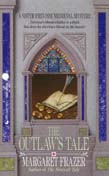For
medieval folk this month began with the summer-welcoming celebrations
of May Day. There would be bonfires on high places, with Winter meant
to die in the flames. All the village hearthfires were put out so they
could be re-lighted from the communal “need-fire”, and on May morning
young people rose especially early (or had been out in the woods all
night) to welcome Summer with the gathering of green-leaved branches
and flowers to carry home for hanging over doorways and decorating
houses. Then there were garlanded processions through the streets, and
carol-singing with dancing, and maypoles, and often a King and a Queen
of the May. The specifics of the celebrations were different from
place to place but merriment was everywhere.
The charm for beauty
was to wash your face in May-morning dew. For fortune-telling, a snail
found at dawn and set to crawl on the ashes of a fire would hopefully
leave a trail in the shape of your true love’s initial, but if it sat
unmoving with its horns drawn in, you would have no lover the rest of
the year, alas.
Despite all this welcoming of Summer, the weather could still hold cold, giving full meaning to the old verse:
On
the land, where everyone’s hopes for a plentiful year lay, the cows
were put back to pasture. For the Saxons this was Tri-Milchi month
when cows might be milked three times a day. Shepherds still wished to
keep the lambs nursing, but milkmaids were eager to have them weaned so
the ewes’ milk could be used with that of the cows for cheese-making.
The third plowing of the fields should be done by now, and the
winter-planted grain was ready for weeding. The spring plantings
would not need that for another month, but the task would go on until
haying at high summer.
This was also the time for making drainage
ditches and for measuring stiff soils with marl and lime. Thatched
roofs needed to be repaired after winter damages, and for rainy days
there was still threshing from last year’s harvest to be done under
cover. Early peas needed planting, and hopefully there was still
fodder left in the barns in case the spring was cold and the grass
late. Horses, wintered in lower country, would be brought now to
summer on the moors (until October).
For hunting, the roebuck (from Easter) and the hare (from Michaelmas in September) were still in season, but nothing else was.
For
the church, this was usually the month of Rogationtide (five weeks
after Easter) and Ascension Day. Rogation Sunday, Monday, Tuesday, and
Wednesday are for fasting or abstinence, with prayers in the church for
the crops’ fertility. Led by the village priest with cross, banners,
bells, and lights, the village men went a-ganging, walking the parish
boundaries with great ceremony. At customary points such as the “Holy
Oak” or “Gospel Stone” prayers were said and blessings asked. Because
literacy was low and records perishable and the correct line of the
boundaries important, small boys accompanied their fathers and were
(with probably less ceremony than more) bumped on boundary stones and
trees and thrown into ponds and streams to help them remember where the
boundary ran.
Rogation ends with Holy Thursday, Ascension Day, celebrating Christ’s ascension into heaven the fortieth day after Easter.
Seven
weeks after Easter comes Pentecost (Whitsunday) and Whitsun week, a
great church festival ending on the following Trinity Sunday. Although
Wednesday, Friday, and Saturday of Whitsun week are meant for fasting
or abstinence, the over-all atmosphere for medieval England seems to
have been one of holiday. As little work as possible was done, and in
the great towns there were elaborate presentations of mystery plays,
and everywhere there were morris dancers, fairs, feasting, much
drinking, and high spirits. This was the time of year when King Arthur
was supposed to have held his most splendid courts, and through the
Middle Ages this was the special season of chivalrous festivities and
tournaments.
It was also traditional that, one way or another,
you had to have gooseberries for Whitsunday dinner, to prevent you
being a fool (a goose) in the coming year. It was also generally known
this was an unlucky month for weddings. On the other hand, May 2 was
the ideal day for gathering wood from the rowan tree to make charms
against witches and fairies. And by May’s end the warm, rich days of
full summer were surely come.

May 1434